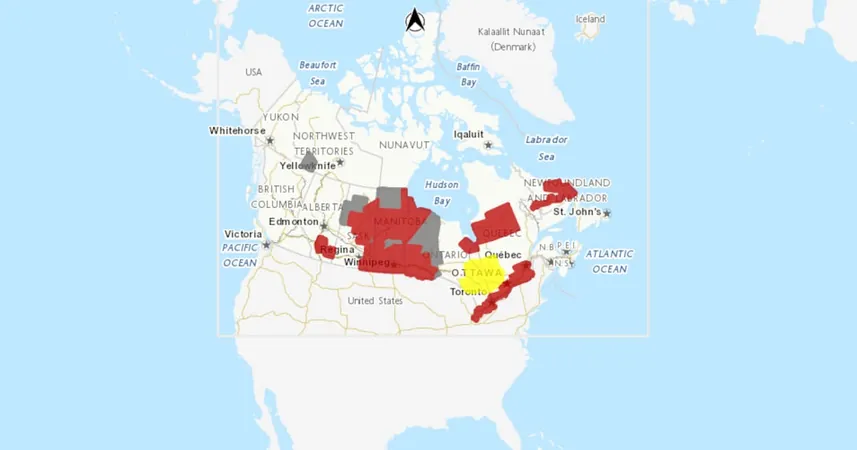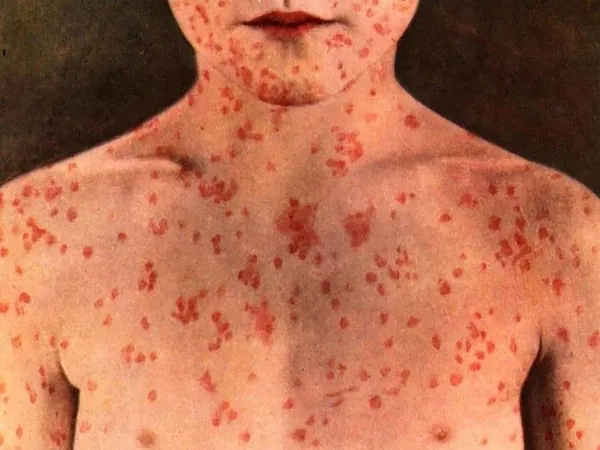
Warning: West Nile Virus Detected in Sudbury! What You Need to Know
2025-07-17
Author: Olivia
Alert! American Crow Tests Positive for West Nile Virus
Public Health Sudbury & Districts has issued a significant health warning following the confirmation of West Nile virus in an American Crow found in the Greater Sudbury area. This is the first recorded case of an infected bird since 2024, raising concerns among local residents.
Jonathan Groulx, a manager at Public Health Sudbury, cautions that while the overall risk of human infection remains low, this case is a stark reminder of the virus's continued presence in the environment. He emphasizes the importance of vigilance and taking precautions against mosquito bites.
Understanding West Nile Virus: The Risk
West Nile virus is primarily spread through the bites of infected mosquitoes. While most people exhibit no symptoms, some may experience mild effects like fever, headaches, and body aches—which can escalate to severe neurological conditions in rare instances.
As late summer approaches, the threat level increases, with mosquitoes carrying a higher concentration of the virus. It’s crucial for everyone to remain proactive in protecting themselves and their families.
Essential Precautions to Take Now
To safeguard your home, consider these simple yet effective measures: - **Screen Your Home**: Ensure all windows and doors are equipped with well-fitting screens to keep mosquitoes at bay. - **Eliminate Standing Water**: Regularly check your surroundings for stagnant water, which serves as breeding grounds for these pests.
For personal safety: - **Dress Appropriately**: Wear light-coloured, long-sleeved clothing and long pants, especially during dawn and dusk when mosquitoes are most active. - **Use Insect Repellents**: Apply an approved insect repellent according to the manufacturer's instructions to enhance your protection.
Report Dead Birds: What You Should Do
If you come across a dead bird, especially in your vicinity, don't hesitate to report it. You can contact the Canadian Wildlife Health Cooperative at 1.866.673.4781 or use their online reporting tool. Stay informed and protect your community!









 Brasil (PT)
Brasil (PT)
 Canada (EN)
Canada (EN)
 Chile (ES)
Chile (ES)
 Česko (CS)
Česko (CS)
 대한민국 (KO)
대한민국 (KO)
 España (ES)
España (ES)
 France (FR)
France (FR)
 Hong Kong (EN)
Hong Kong (EN)
 Italia (IT)
Italia (IT)
 日本 (JA)
日本 (JA)
 Magyarország (HU)
Magyarország (HU)
 Norge (NO)
Norge (NO)
 Polska (PL)
Polska (PL)
 Schweiz (DE)
Schweiz (DE)
 Singapore (EN)
Singapore (EN)
 Sverige (SV)
Sverige (SV)
 Suomi (FI)
Suomi (FI)
 Türkiye (TR)
Türkiye (TR)
 الإمارات العربية المتحدة (AR)
الإمارات العربية المتحدة (AR)